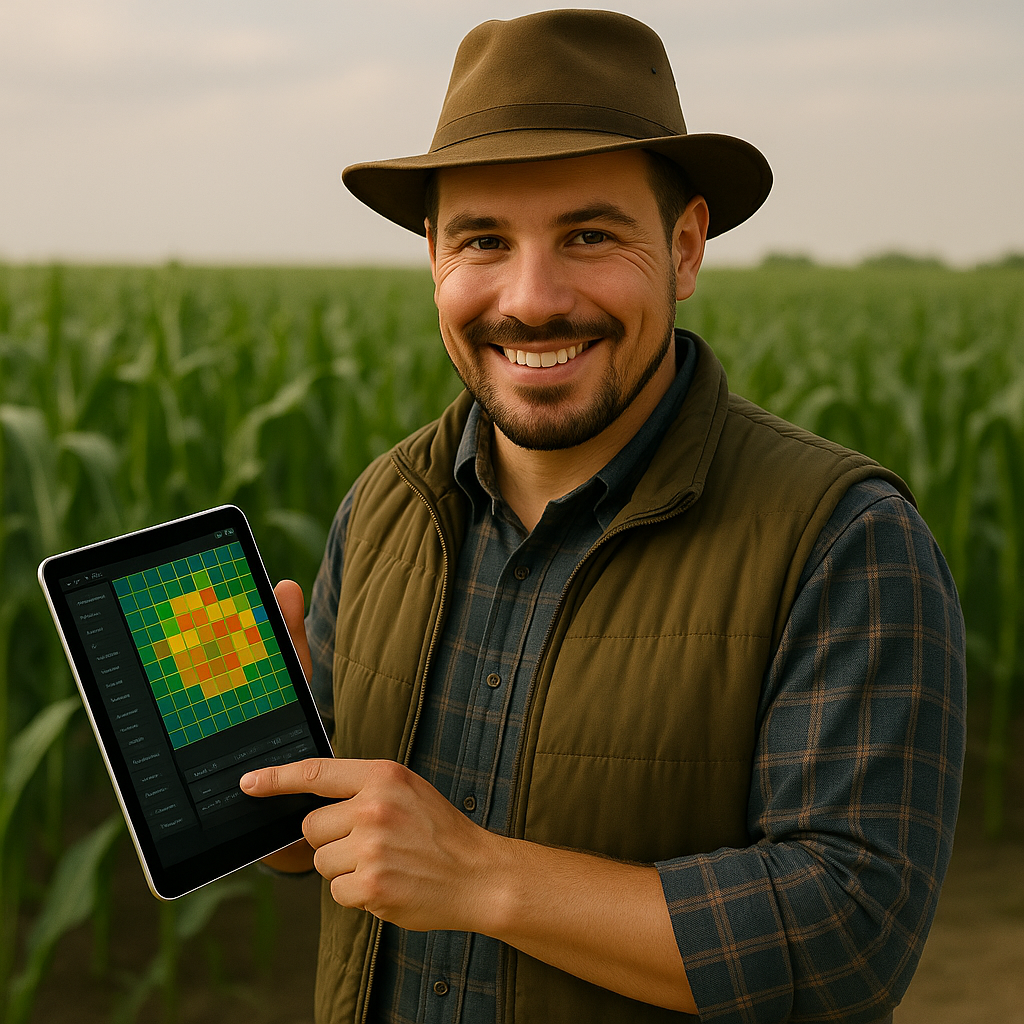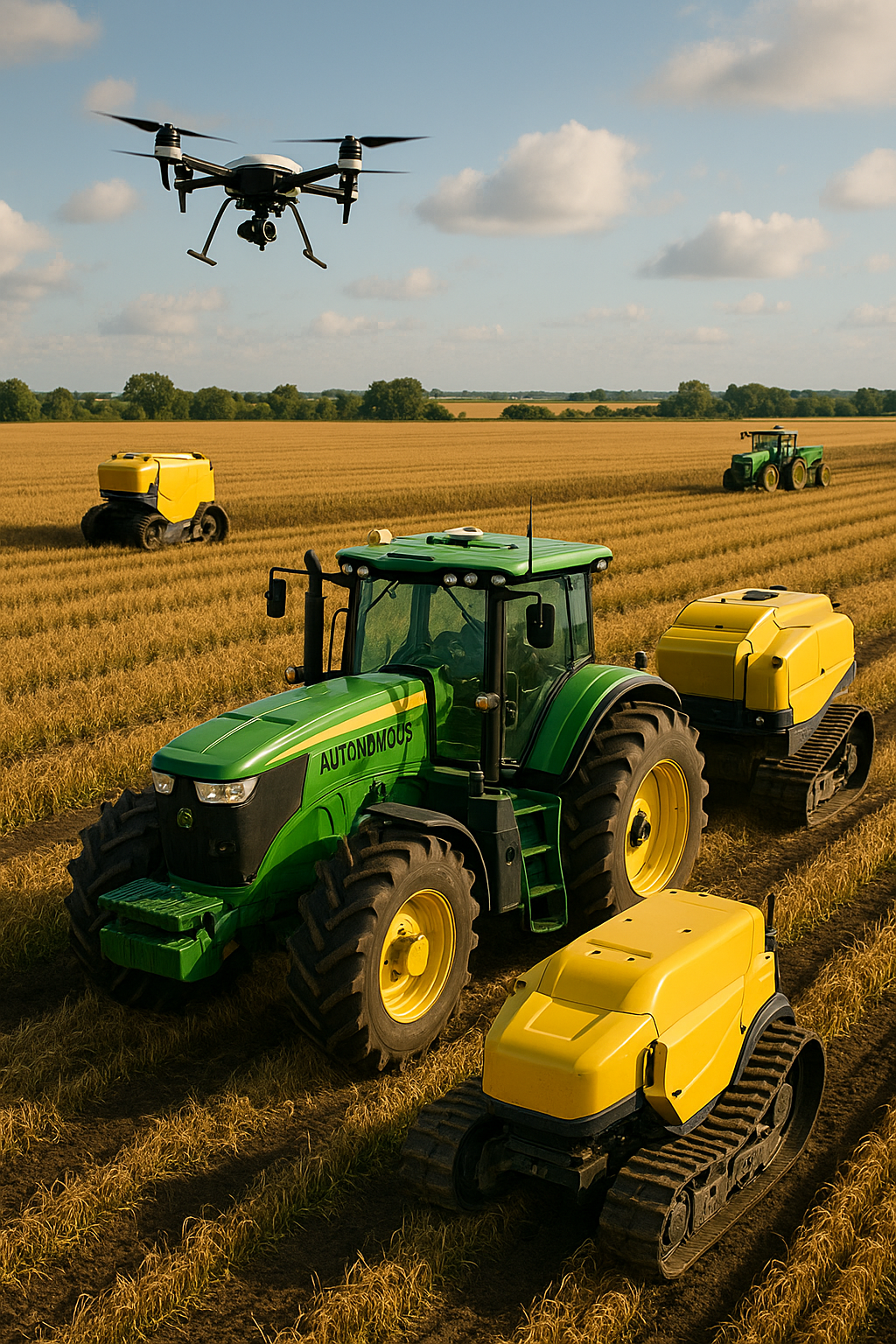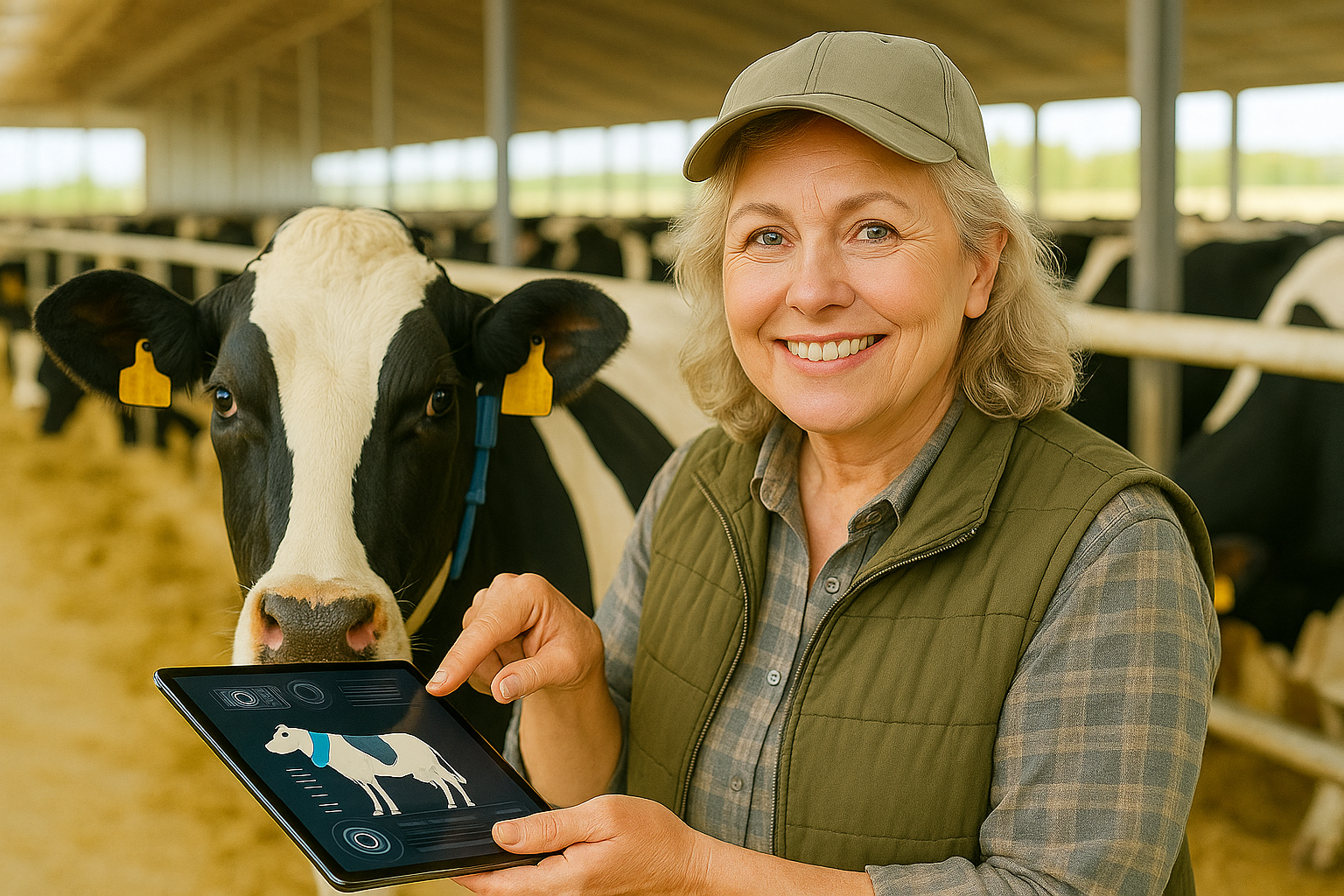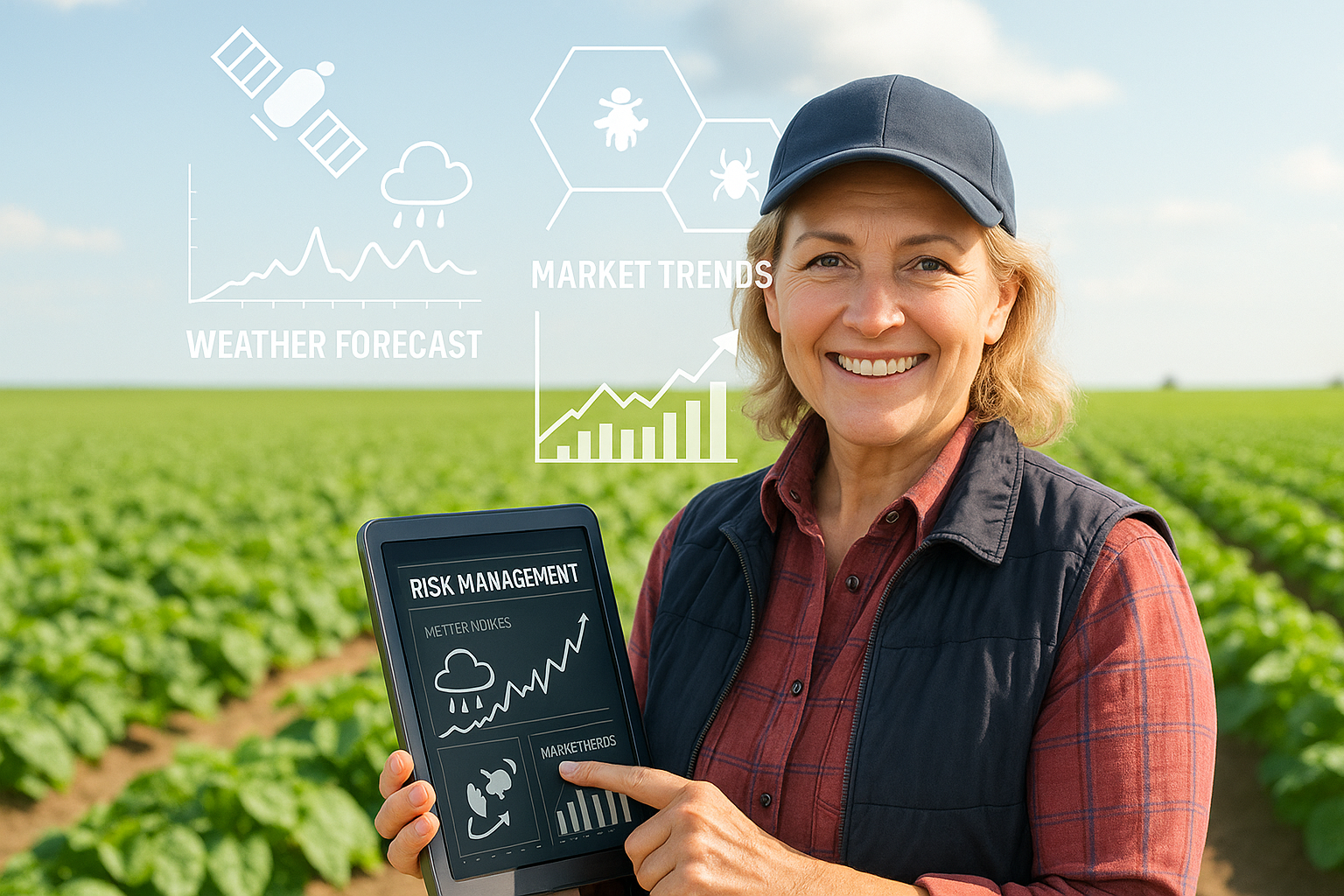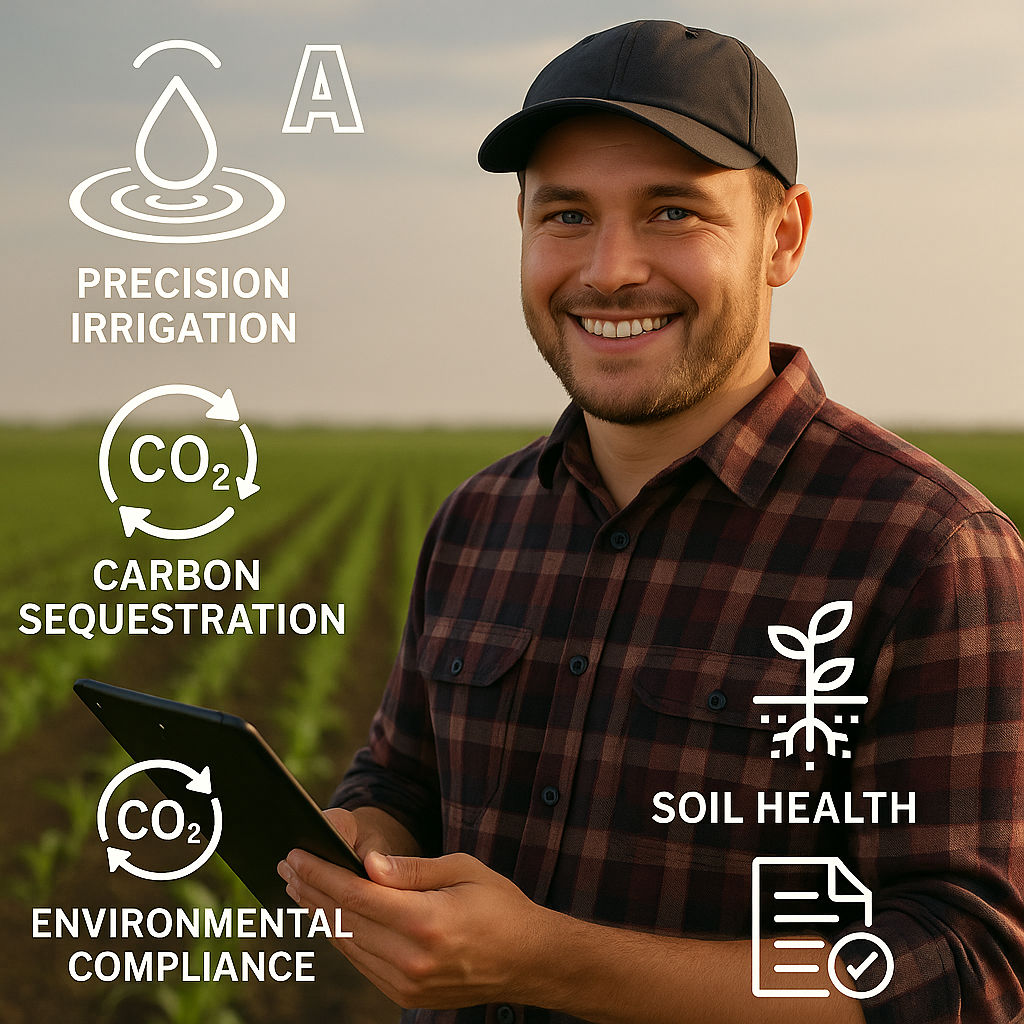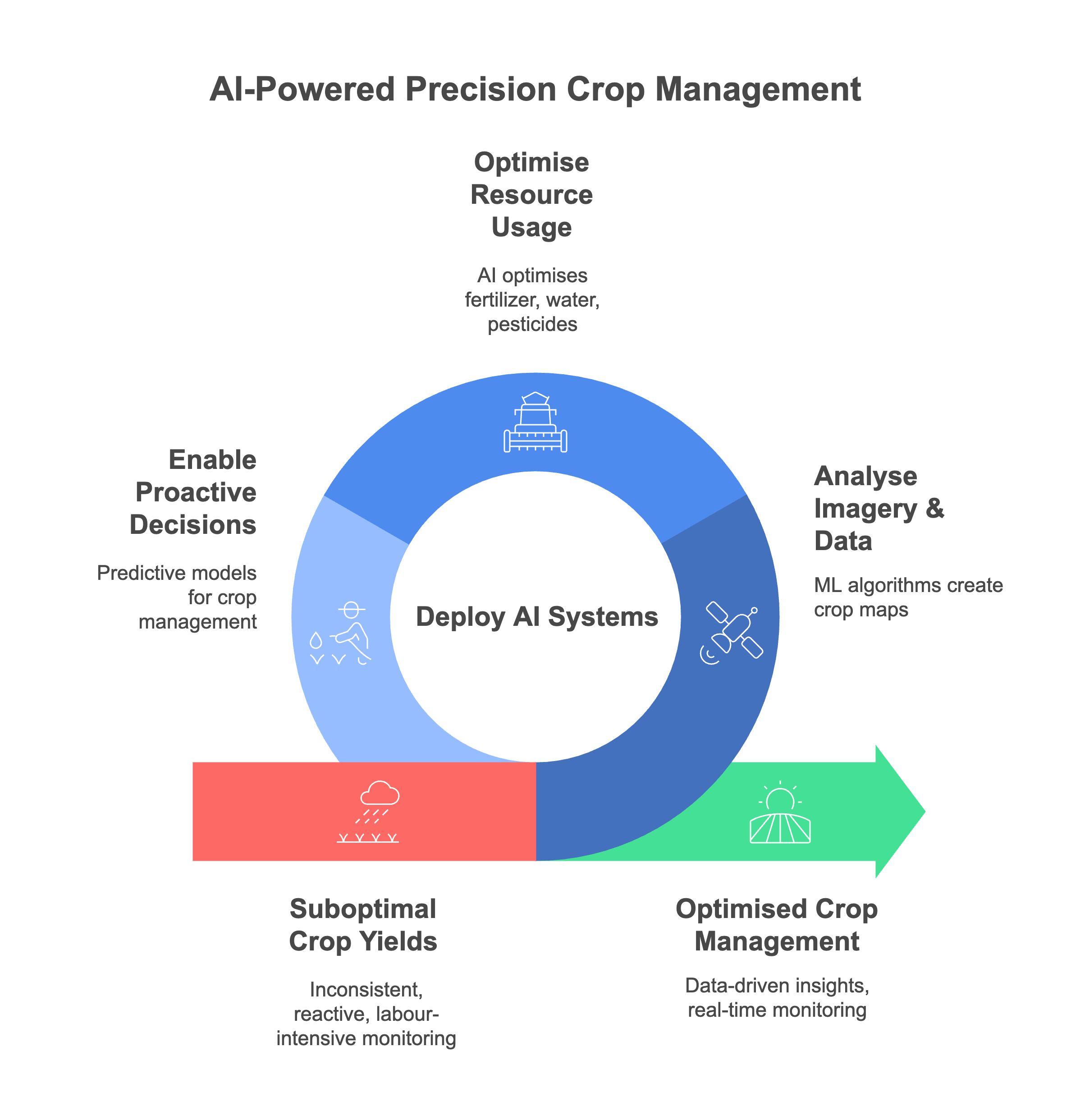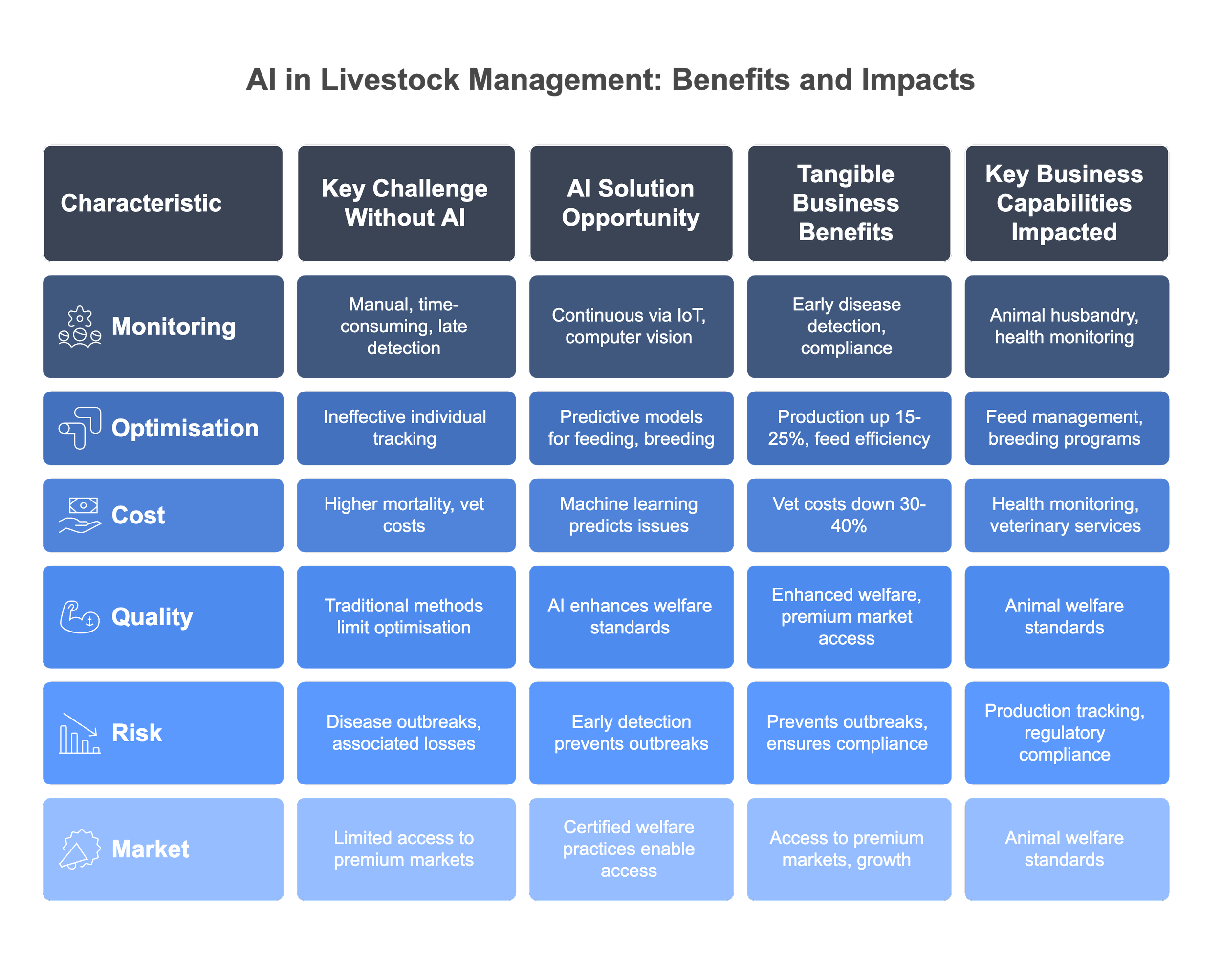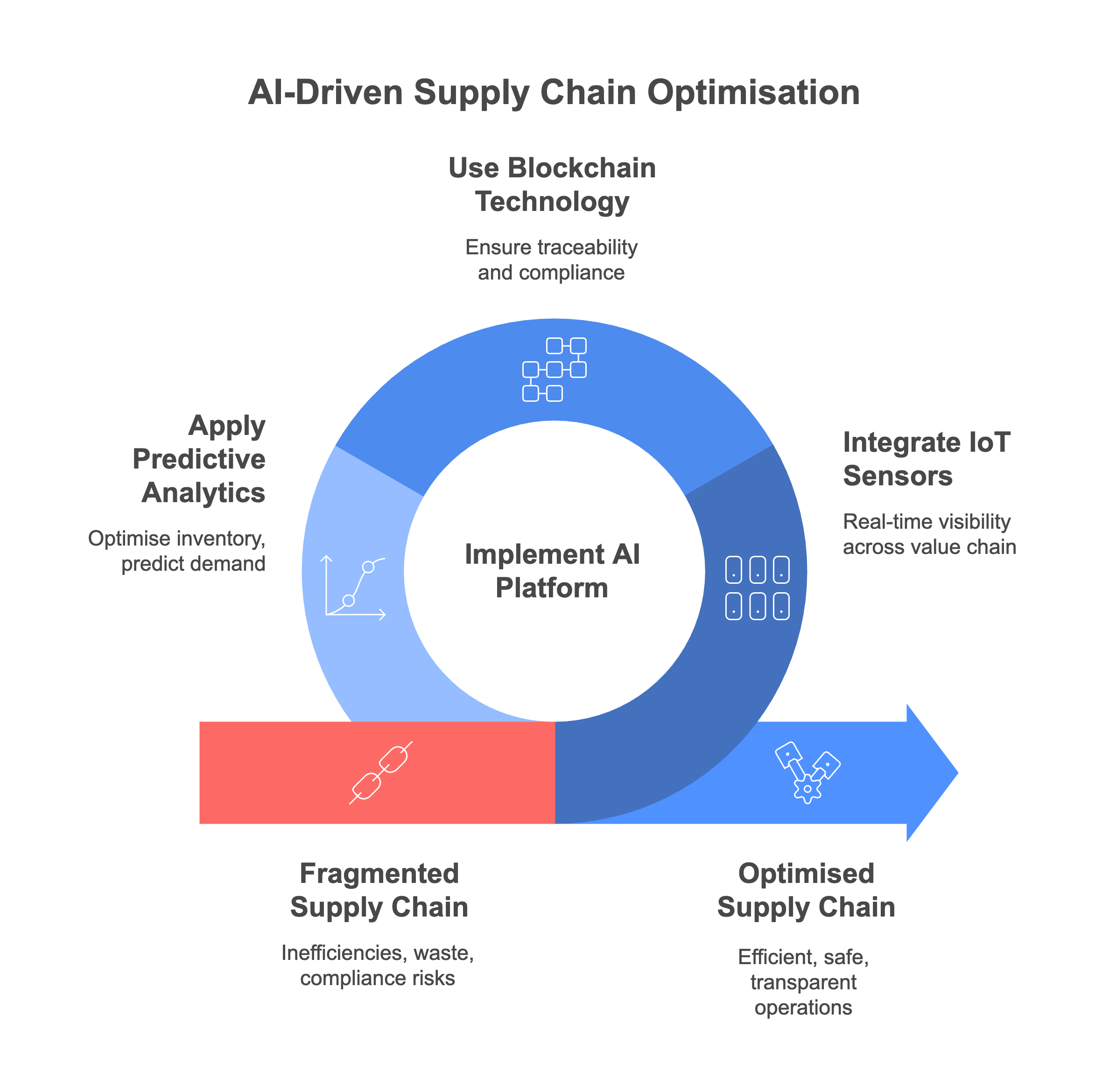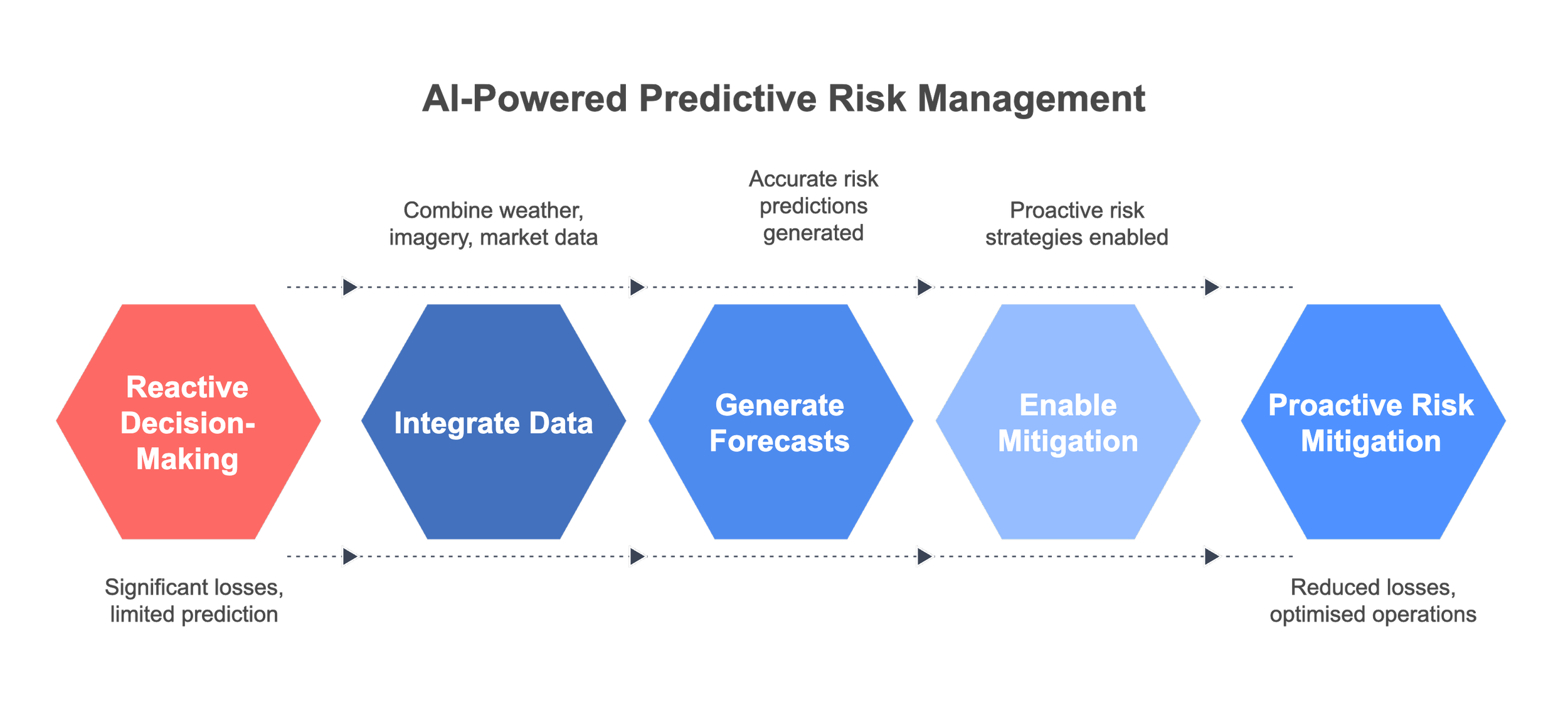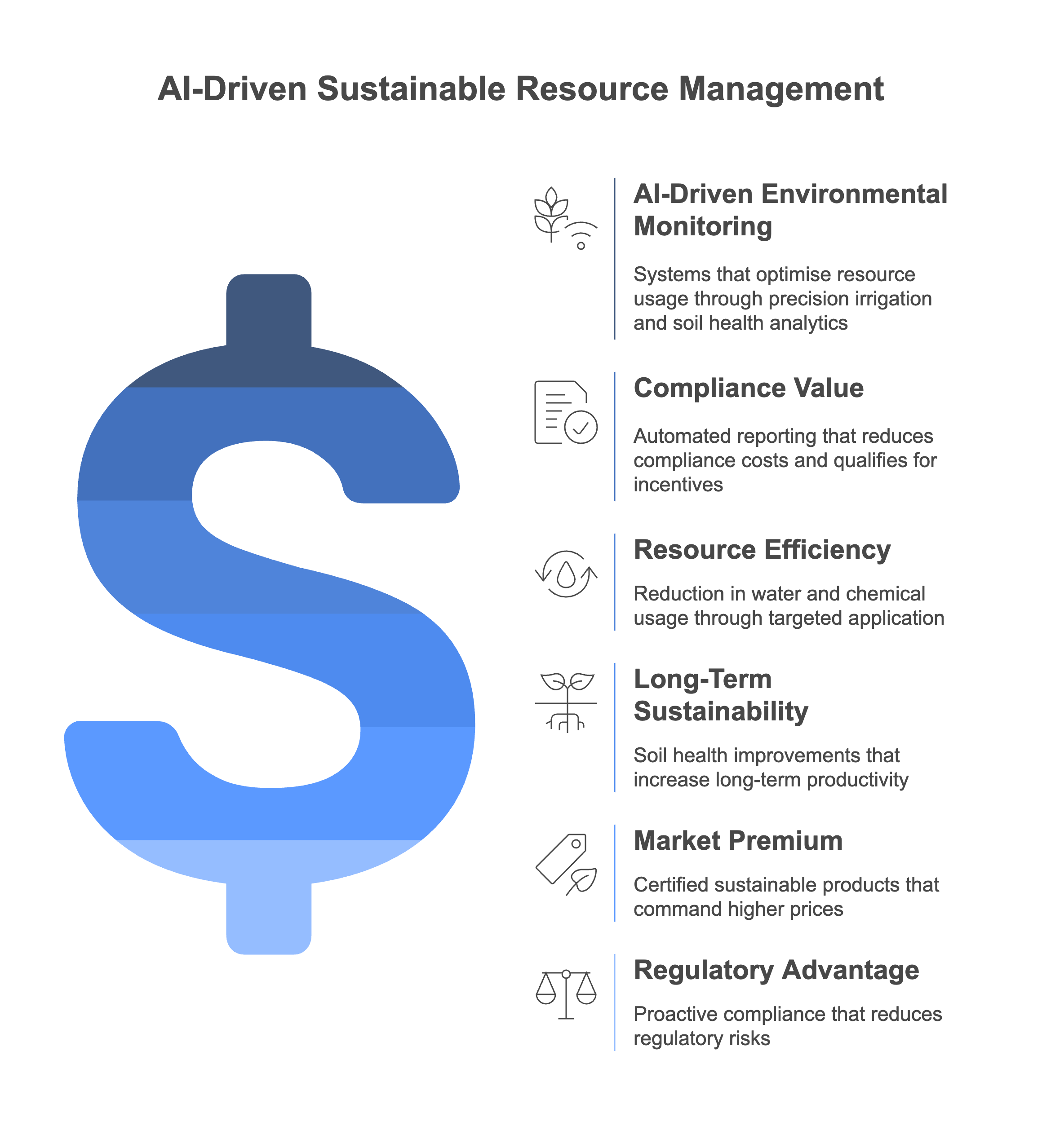
Cultivate the Future
AI-Powered Agriculture for Sustainable Growth

Precision Agriculture: AI-Driven Growth Toward Australia's $100B Future
Australian agriculture targets $100 billion annual output by 2030, requiring unprecedented productivity gains and sustainable practices. AI emerges as the essential catalyst, enabling precision crop management, autonomous operations, and intelligent resource allocation. Leading agricultural enterprises already achieve 10-15% yield increases and 20-30% cost reductions through AI adoption. The sector's transformation demands sophisticated technology integration across cultivation, livestock management, supply chains, and risk mitigation to capture competitive advantages in global export markets while maintaining environmental stewardship.
The following six strategic AI scenarios demonstrate how digibus.ai can help agricultural organisations seize these transformative opportunities:

Ready to Revolutionise your Agricultural Operations?
At digibus.ai, we don't just understand technology – we understand agriculture. Our team combines deep AgTech expertise with cutting-edge AI solutions designed specifically for Australian farms and agricultural enterprises. Whether you're managing crops, livestock, or complex supply chains, we've helped agricultural leaders achieve remarkable results: yield increases, cost reductions, and sustainable practices that open premium market opportunities.
We know the unique challenges you face – from unpredictable weather and labour shortages to demanding export markets and sustainability requirements. That's why our AI solutions are built for real farming conditions, delivering practical results that improve your bottom line while supporting environmental stewardship.
Why choose digibus.ai?
Proven track record with Australian agricultural enterprises
Industry-specific AI solutions, not generic tech
End-to-end support from strategy to implementation
Measurable ROI with transparent performance metrics
Transform your Agricultural Operations into a Precision-Driven, Profitable Enterprise
Precision Crop Management & Yield Optimisation
AI-powered precision agriculture systems integrating satellite imagery, IoT sensors, and machine learning to optimise crop health monitoring, yield forecasting, and resource allocation for maximum productivity.
CHALLENGE WITHOUT AI
Manual crop monitoring is labour-intensive, inconsistent, and reactive, leading to suboptimal yields, overuse of inputs, and increased production costs whilst missing optimisation opportunities.
AI SOLUTION OPPORTUNITY
Deploy machine learning algorithms analysing multi-spectral satellite imagery, IoT sensor data, and historical records creating precise crop health maps, yield predictions, and AI-powered variable rate application systems.
IMPACTED CAPABILITIES
Crop cultivation and management, resource planning and allocation, quality assurance and control, research and development, data analytics and decision support, financial planning and budgeting.
TANGIBLE BUSINESS BENEFITS
Revenue growth: Yield increases through optimised crop management and precision agriculture techniques whilst enhanced crop quality commands premium pricing in export markets.
Cost reduction: Reduction in input costs through precise application of fertilisers, pesticides, and water with labour cost savings through automation of monitoring and data collection.
Operational excellence: Improvement in decision-making accuracy through data-driven insights whilst real-time monitoring enables continuous crop optimisation and immediate response to threats.
Risk mitigation: Early detection systems prevent potential crop losses from diseases and pests whilst improved weather forecasting reduces climate-related risks significantly.
Market competitiveness: Certified sustainable practices open access to premium markets whilst enhanced traceability meets increasing consumer and regulatory demands for transparency.
Autonomous Farm Operations & Equipment
Deployment of autonomous machinery including self-driving tractors, robotic harvesters, and AI-guided drones operating continuously with minimal human intervention for precision field operations.
BUSINESS SCENARIO
Deployment of autonomous machinery including self-driving tractors, robotic harvesters, and AI-guided drones operating continuously with minimal human intervention for precision field operations.
CHALLENGE WITHOUT AI
Labour shortages and rising wage costs threaten operational efficiency and scalability whilst manual operations suffer from human error, inconsistent quality, and limited working hours.
AI SOLUTION OPPORTUNITY
Implement autonomous vehicle technologies with computer vision and GPS guidance for precision field operations whilst AI-powered fleet management systems coordinate multiple machines and optimise routes.
IMPACTED CAPABILITIES
Field operations and machinery management, labour management and workforce planning, equipment maintenance and asset management, production scheduling and workflow optimisation, safety and compliance management, technology infrastructure.
TANGIBLE BUSINESS BENEFITS
Operational efficiency: Increase in operational productivity through continuous autonomous operations whilst precision accuracy reduces waste and improves resource utilisation substantially.
Cost savings: Reduction in labour costs through automation with fuel savings through optimised routes and operations plus maintenance cost reduction through predictive maintenance.
Quality improvement: Consistent operation quality eliminating human error variability whilst precision application reduces environmental impact and meets sustainability requirements effectively.
Scalability: Ability to expand operations without proportional workforce increases whilst standardised processes enable rapid scaling across multiple sites efficiently.
Safety enhancement: Reduced worker exposure to hazards and chemicals whilst autonomous systems operate safely in challenging conditions consistently.
Intelligent Livestock Management
Advanced AI systems monitoring livestock health, behaviour, and productivity through wearable sensors, computer vision, and predictive analytics for early disease detection and optimised animal management.
CHALLENGE WITHOUT AI
Manual livestock monitoring fails to detect health issues early, resulting in higher mortality rates, increased veterinary costs, and reduced productivity whilst limiting breeding optimisation opportunities.
AI SOLUTION OPPORTUNITY
Deploy wearable IoT devices and computer vision systems continuously monitoring animal health indicators, behaviour patterns, and productivity metrics whilst predicting health issues before clinical symptoms appear.
IMPACTED CAPABILITIES
Animal husbandry and welfare management, health monitoring and veterinary services, feed management and nutrition optimisation, breeding and genetics programmes, production tracking and reporting, regulatory compliance.
TANGIBLE BUSINESS BENEFITS
Production optimisation: Improvement in livestock productivity through optimised health and nutrition management whilst early intervention reduces mortality rates significantly.
Cost reduction: Veterinary cost savings through preventive health management with feed efficiency improvements through precision nutrition consistently.
Quality assurance: Enhanced animal welfare standards meeting premium market requirements whilst improved breeding programmes increase genetic value and productivity substantially.
Risk management: Early disease detection prevents widespread outbreaks and associated losses whilst continuous monitoring ensures compliance with animal welfare regulations.
Market access: Certified animal welfare practices enable access to premium markets and export opportunities whilst enhanced productivity supports business growth and expansion.
Supply Chain Optimization & Traceability
AI-driven supply chain management platforms optimising logistics, inventory management, and end-to-end traceability from farm to consumer whilst ensuring food safety compliance comprehensively.
CHALLENGE WITHOUT AI
Fragmented supply chain visibility leads to inefficiencies, food waste, and compliance risks whilst manual tracking systems cannot provide real-time insights for responsive decision-making.
AI SOLUTION OPPORTUNITY
Implement AI-powered supply chain platforms integrating IoT sensors, blockchain technology, and predictive analytics providing real-time visibility across the entire value chain whilst optimising inventory levels.
IMPACTED CAPABILITIES
Logistics and transportation management, inventory and warehouse management, procurement and supplier relations, quality control and food safety, customer relationship management, regulatory compliance and traceability.
TANGIBLE BUSINESS BENEFITS
Revenue enhancement: Increase in revenue through reduced waste and optimised distribution whilst premium pricing for certified traceable products provides additional value consistently.
Cost optimisation: Reduction in logistics costs through route optimisation and demand forecasting with inventory carrying cost reduction through predictive analytics significantly.
Operational excellence: Real-time visibility enables accuracy in delivery commitments whilst automated compliance reporting reduces administrative costs substantially.
Risk mitigation: Enhanced food safety protocols prevent costly recalls and protect brand reputation whilst full traceability ensures rapid response to quality issues.
Market differentiation: End-to-end transparency meets consumer demands and enables premium positioning whilst certified supply chain practices open access to quality-focused markets.
Predictive Analytics for Risk Management
Comprehensive AI-powered risk assessment and management systems predicting weather patterns, detecting pest and disease outbreaks, and forecasting market conditions for proactive decision-making.
CHALLENGE WITHOUT AI
Reactive decision-making based on historical patterns leads to significant losses from weather events, pest outbreaks, and market volatility whilst limiting proactive risk mitigation capabilities.
AI SOLUTION OPPORTUNITY
Deploy comprehensive AI platforms integrating weather data, satellite imagery, market intelligence, and historical farm data generating accurate risk forecasts whilst enabling proactive mitigation strategies.
IMPACTED CAPABILITIES
Risk assessment and management, weather monitoring and climate adaptation, pest and disease management, market analysis and forecasting, insurance and financial risk management, strategic planning.
TANGIBLE BUSINESS BENEFITS
Loss prevention: Reduction in weather-related crop losses through accurate forecasting and early warning systems whilst pest and disease prediction prevents potential damage effectively.
Financial optimisation: Insurance cost reduction through demonstrated risk management capabilities with market timing optimisation increasing revenue through strategic positioning.
Operational resilience: Proactive planning reduces emergency response costs whilst business continuity planning minimises operational disruptions significantly.
Strategic advantage: Superior market intelligence enables competitive positioning and pricing strategies whilst data-driven decision making improves long-term profitability consistently.
Stakeholder confidence: Transparent risk management builds investor and lender confidence, improving access to capital and reducing financing costs substantially.
Sustainable Resource Management
AI-enabled systems optimising water usage, soil health monitoring, and environmental compliance supporting regenerative agriculture practices whilst maintaining productivity levels consistently.
CHALLENGE WITHOUT AI
Manual monitoring of environmental factors insufficient for meeting sustainability goals and regulatory requirements whilst traditional practices lead to overuse and soil degradation.
AI SOLUTION OPPORTUNITY
Implement AI-driven environmental monitoring systems optimising resource usage through precision irrigation, soil health analytics, and carbon sequestration tracking whilst ensuring regulatory compliance automatically.
IMPACTED CAPABILITIES
Environmental management and sustainability, water and irrigation management, soil health and nutrient management, waste reduction and circular economy, carbon footprint monitoring, regulatory compliance.
TANGIBLE BUSINESS BENEFITS
Compliance value: Automated environmental reporting reduces compliance costs whilst certified sustainable practices qualify for government incentives and carbon credits effectively.
Resource efficiency: Reduction in water usage through precision irrigation with chemical input reduction through targeted application consistently.
Long-term sustainability: Soil health improvements increase long-term productivity whilst carbon sequestration programmes create new revenue streams annually.
Market premium: Certified sustainable products command price premium in export markets whilst environmental stewardship enhances brand value and customer loyalty.
Regulatory advantage: Proactive compliance reduces regulatory risks and penalties whilst leadership in sustainability practices positions for future regulatory requirements.

